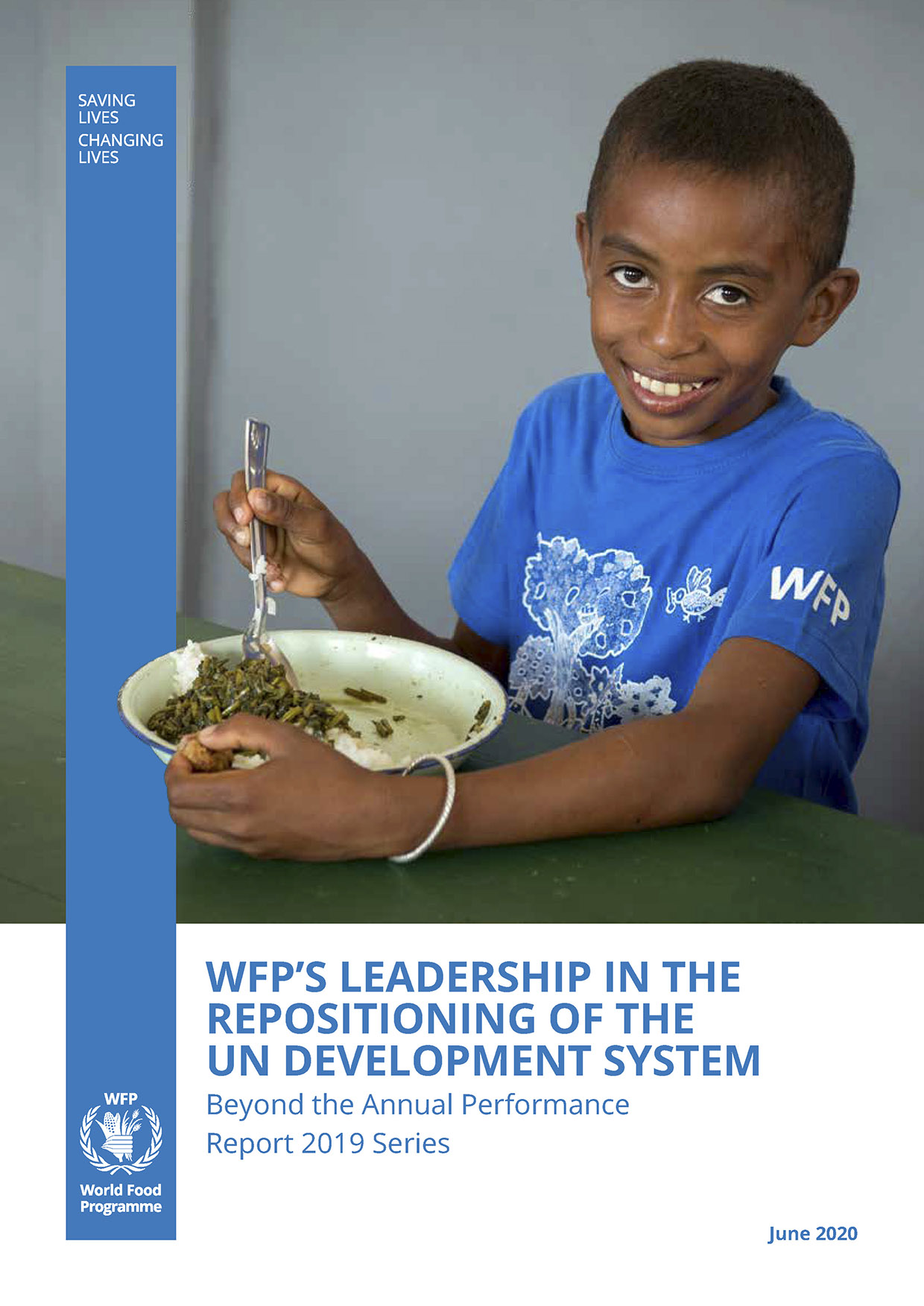WFP advances the objectives of the UN repositioning for Agenda 2030 to improve results on the ground. The continued growth in the number of hungry people in the world, reflected in the 2019 State of Food Security and Nutrition report, and exacerbated by the COVID-19 crisis, highlights the need for partners across the UN to pursue system-wide efforts to improve the effective and efficient achievement of the SDGs. While the UN reform effort is still in its early stages, WFP is actively engaged in the collective effort, leading in areas of comparative strengths. However, there is much work to be done, particularly on collective ownership, mutual accountability, common data management and continued efforts towards common premises.
The Secretary General’s “Decade of Action” to deliver the SDGs began in 2020. As WFP extends its planning horizon, it is reinforcing its focus to supporting countries and communities in building their resilience. National government’s attainment of the SDGs, supported by WFP and the wider UN, will enable them to thrive in the longer term. The second-generation Country Strategic Plan portfolio will build on the gains made by the Integrated Road Map, while continuously moving towards a closer alignment with national SGD targets as framed by the new CF. Following an inclusive Country Strategic Plan design approach that draws on WFP’s collective excellence and expertise, WFP will continue strategic and programmatic transformation at country level to ensure no one is left behind.

